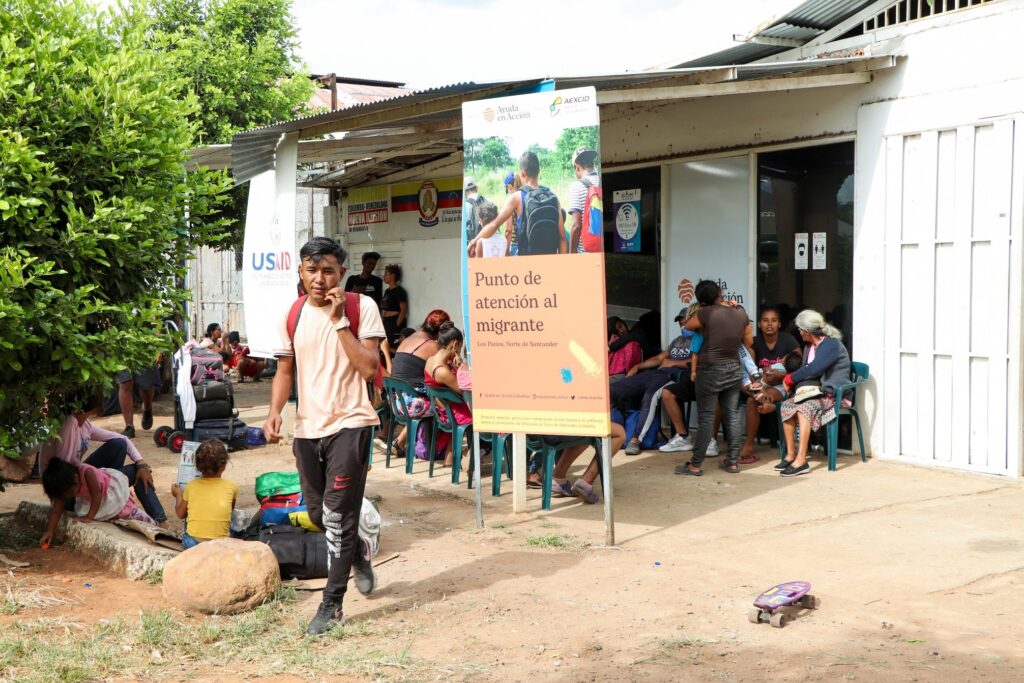
In a corner of Central America, that sign bearing the USAID logo represents far more than just international aid from one country—it represents the possibility of a temporary refuge, a place that restores, if only for a few hours, dignity and some of the most fundamental rights to thousands of people facing extreme conditions as they seek a better life.
It’s a Humanitarian Assistance Service Point for migrants traveling along some of the most dangerous routes in the world, exposed to the harshest forms of vulnerability and violence.
These spaces provide not only food, clothing, shoes, and absolutely essential information that in many cases prevents human trafficking and exploitation, but also areas for rest and recreation, opportunities to communicate with loved ones, and more. Above all, these are spaces that migrants consider safe havens—places of trust, care, and respect that give them the strength to continue their journey.
These are not words taken from news reports or social media headlines. These are the voices I personally heard from the families we interviewed at these service points in September 2024.
We’ve read and heard it again and again in recent months. The U.S. government’s decision has devastating consequences for thousands of lives. But the cruelty, the dehumanization, and the sheer perversity become truly real when we put a voice, a body, and a soul to it—through the stories of women fleeing violence, of children traveling alone, of families worn down by hunger.
The closure of USAID means the closure of many of these spaces. It’s the loss of places where rights—unjustly stripped away—are temporarily restored. It’s the loss of access to critical information that could protect people from becoming victims of crime. It’s the loss of hope—of encounters with people who care, who see them, understand them, and walk beside them.
The closure of these spaces is the closure of empathy, dignity, and solidarity—values so basic, so universal, that without them, all that’s left is dehumanization.

